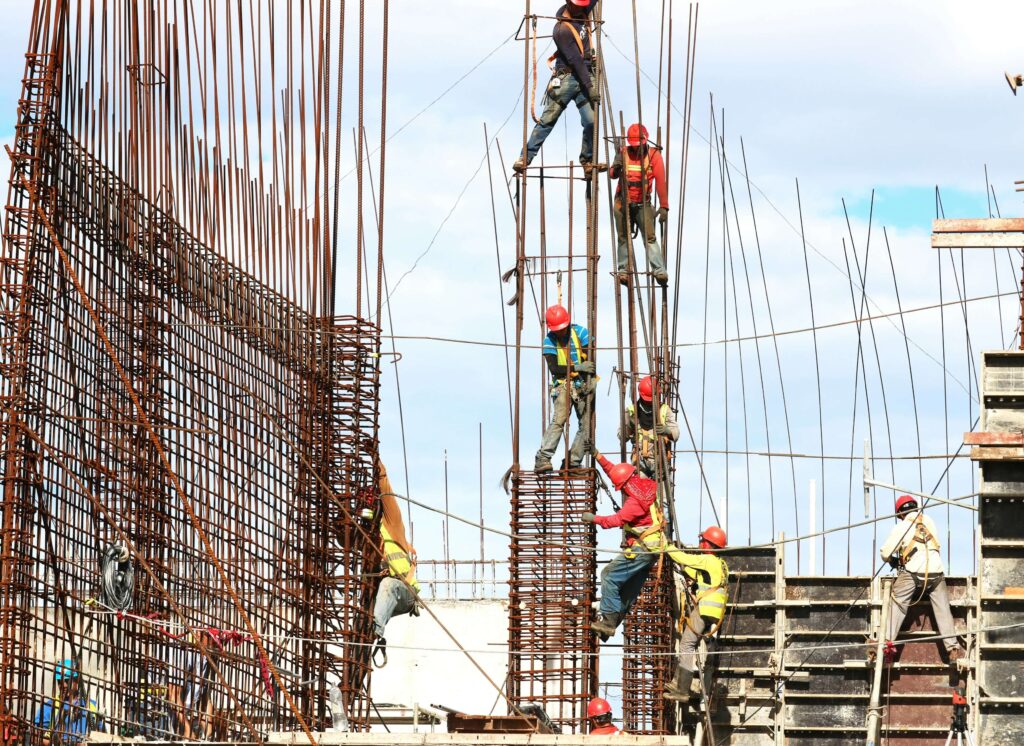

In construction, even the most minor setbacks can balloon into major problems, causing a domino effect of tension, added expenses, and client dissatisfaction. Construction pros can’t afford to ignore the root causes of project holdups – identifying and fixing these issues is crucial for success.
Common Reasons for Construction Delays
Construction delays can stem from a myriad of sources. These often include unforeseen environmental conditions, delays in the supply of materials, labor shortages, poor project management, and ineffective communication among stakeholders. Budget overruns and timeline delays are a constant threat when these factors come into play in a construction project.
Importance of Timely Project Deliveries
Delivering projects on time is not only critical to maintaining profitability but also essential for building a reputable brand in the construction industry. Timely project deliveries enhance client satisfaction, reduce the cost of capital, and avoid disputes and litigations which can arise from delayed projects.
Thorough Project Planning
The foundation of any successful construction project lies in its planning phase. Project planning is the difference between cruising through a project and constantly putting out fires. When you plan meticulously, you can preempt sticky situations and make smart decisions about resources, setting your project up for a home run.
Techniques for Effective Planning
One of the most effective planning techniques is the development of a Work Breakdown Structure (WBS). Break down a project into smaller parts, and suddenly you’ve got a clear plan for resource allocation, task management, and tracking progress. To get a handle on schedules and costs, managers should divide up projects into smaller, bitesize tasks.
Effective Project Scheduling
Creating a robust schedule involves not only listing tasks but understanding their sequences and dependencies. Techniques such as Critical Path Method (CPM) and Gantt charts are widely used for this purpose. When project managers layer tasks over a timeline, they uncover hidden vulnerabilities, estimate the wreckage caused by delays, and readjust their resource blueprint to recover lost ground.
Tools and Software That Assist in Effective Scheduling
Modern construction projects benefit significantly from scheduling software that offers real-time data and updates. With Microsoft Project, Primavera P3, and similar tools, you’ve got a game plan to keep your project moving forward. By allowing for effortless updates and tweaks, you can adapt to changes as the project unfolds.
Clear Communication Channels
Clear and effective communication is the glue that holds project teams together. Establishing open lines of communication among all stakeholders—including project managers, contractors, clients, and suppliers—ensures that everyone is aligned with the project goals and aware of their responsibilities.
Communication Strategies to Ensure Everyone Is on the Same Page
Regular meetings, clear documentation, and the use of collaborative tools can enhance communication. It’s also beneficial to use centralized communication platforms where updates, changes, and concerns can be shared swiftly across all involved parties.
Risk Management Strategies
Early identification of potential risks through techniques like SWOT analysis or risk mapping allows teams to address issues before they cause delays. By anticipating and addressing potential risks early on, construction projects can avoid those costly surprises that tend to sneak up on you.
Developing Contingency Plans and Proactive Risk Management
Developing contingency plans for identified risks ensures that the project team is prepared to act swiftly and efficiently without derailing the project timeline. Expanding your supplier network or having a backup team in place can save the day when key tasks need to get done.
Adequate Resource Allocation
Effective resource allocation is critical to avoid delays. This includes not just materials and equipment but also the right personnel for the job. Planning for resource availability must be thorough and consider various scenarios and potential delays in supply chains.
Strategies to Manage Resources Efficiently to Prevent Delays
Resource leveling and resource forecasting are two strategies that can help manage resources efficiently. The payoff of using these techniques is two-fold: you’ll maximize your current resources and be better equipped to plan for the resources you’ll need in the future, all based on real-time project insights and forward-looking projections.
Use Equipment That Speeds Up Key Phases
Delays often stack up during material placement, especially backfilling, gravel bedding, or base prep. One way to cut down that time significantly is by using a stone spreading machine. Unlike traditional dumping methods, a stone spreading machine places material exactly where it needs to go with speed and precision. That means fewer labor hours, less site disruption, and fewer scheduling headaches.
If your crew is still relying on wheelbarrows or slow equipment for fill placement, you’re losing time. Integrating efficient machines like stone spreading machines into your workflow helps tighten timelines and keep momentum through critical phases.
Experienced Project Management
Experienced project managers play a crucial role in avoiding delays. They excel at wrangling the multiple moving parts of construction projects, meshing resource coordination with top-notch communication and incisive decision-making.
Importance of Leadership and Decision-Making Skills in Construction Management
Leadership and strong decision-making skills are essential attributes of successful project managers. Project managers with these skills are supercharged to energize their teams, balance demanding stakeholder needs, and respond swiftly to burgeoning issues that could otherwise slam the brakes on a project’s momentum.
Regular Progress Monitoring
Regular monitoring of project progress is crucial to ensure that everything is on track. From day one, vigilantly track your project’s trajectory through regular meetups, boots-on-the-ground inspections, and software that paints a picture of what’s working – and what’s not.
How Regular Check-Ins Can Prevent Long-Term Delays
Frequent monitoring allows project managers to identify and address delays immediately before they affect larger segments of the project. Regular check-ins serve as a way to reassess the project’s progress against its schedule continuously.
Dealing with Change Orders Effectively
Change orders are almost inevitable in construction projects, often arising from unforeseen challenges or client requests. Managing these effectively is essential to prevent them from derailing the project timeline.
Strategies to Handle Change Orders Without Derailing the Project Timeline
One effective strategy is to establish a clear process for handling change orders that includes rapid assessment, approval, and implementation. Swift stakeholder communication is crucial here; update your risk assessment to grasp the ripple effect on project scope, budget, and timeline.
Importance of Flexibility and Swift Response to Changes
Flexibility and the ability to respond swiftly to changes are key qualities in managing change orders effectively. Project teams that can quickly adapt to new requirements or challenges are better equipped to mitigate potential delays.
Construction Management Software
With construction management software on the scene, project manageability just got a whole lot easier, bringing unforeseen levels of organization and precision to the table. Manage your projects from A to Z with platforms that bundle essential tools for scheduling, communication, and documentation into one tidy package.
Without clear communication and smooth task management, construction projects can easily go off the rails. Luckily, construction management software like Premier can optimize the tasks, making it simple for project managers to keep everything on track.
With construction management software, project planning, scheduling, resource allocation, and communication all come together in one place, making life easier for builders. Document access becomes a breeze with cloud storage, where every project detail is always up to date and at your fingertips.
Features like Real-Time Updates, Project Tracking, and Document Management That Help Avoid Delays
Key features of construction management software, such as real-time updates and project tracking, provide project managers with up-to-the-minute information on the project status. Say goodbye to mix-ups and setbacks: a document management system streaming the latest project details to every team member means everyone works from the same playbook, effortlessly staying on schedule.
Conclusion
Construction project delays can sink a company’s reputation and blow a hole in the budget – all at once. Instead of throwing your hands up in frustration, analyze the sources of delays and take corrective action – this one-two punch can significantly boost your project’s chances of finishing on schedule.
Through thorough planning, effective scheduling, clear communication, proactive risk management, adequate resource allocation, experienced project management, regular progress monitoring, effective handling of change orders, and the implementation of construction management software, construction projects can be completed on time and within budget.
For construction pros, using these strategies isn’t just a nice-to-have – it’s a must-have for pumping up project delivery. As the construction industry transforms, its toolkit is transforming right along with it. Delays have always been the construction industry’s arch-nemesis. But what if we told you that by syncing up project management with available resources, you could steer clear of these headaches?
A high-performing team requires more than just talent – it demands continuous learning and the right tools to support innovative strategies. Give your team the gift of growth. When you integrate these best practices, the payoff is twofold: your projects gain momentum, and your clients walk away beaming with satisfaction, forging a stronger bond between your company and the community you serve.
- 1share
- Facebook0
- Pinterest1
- Twitter0
- Reddit0



